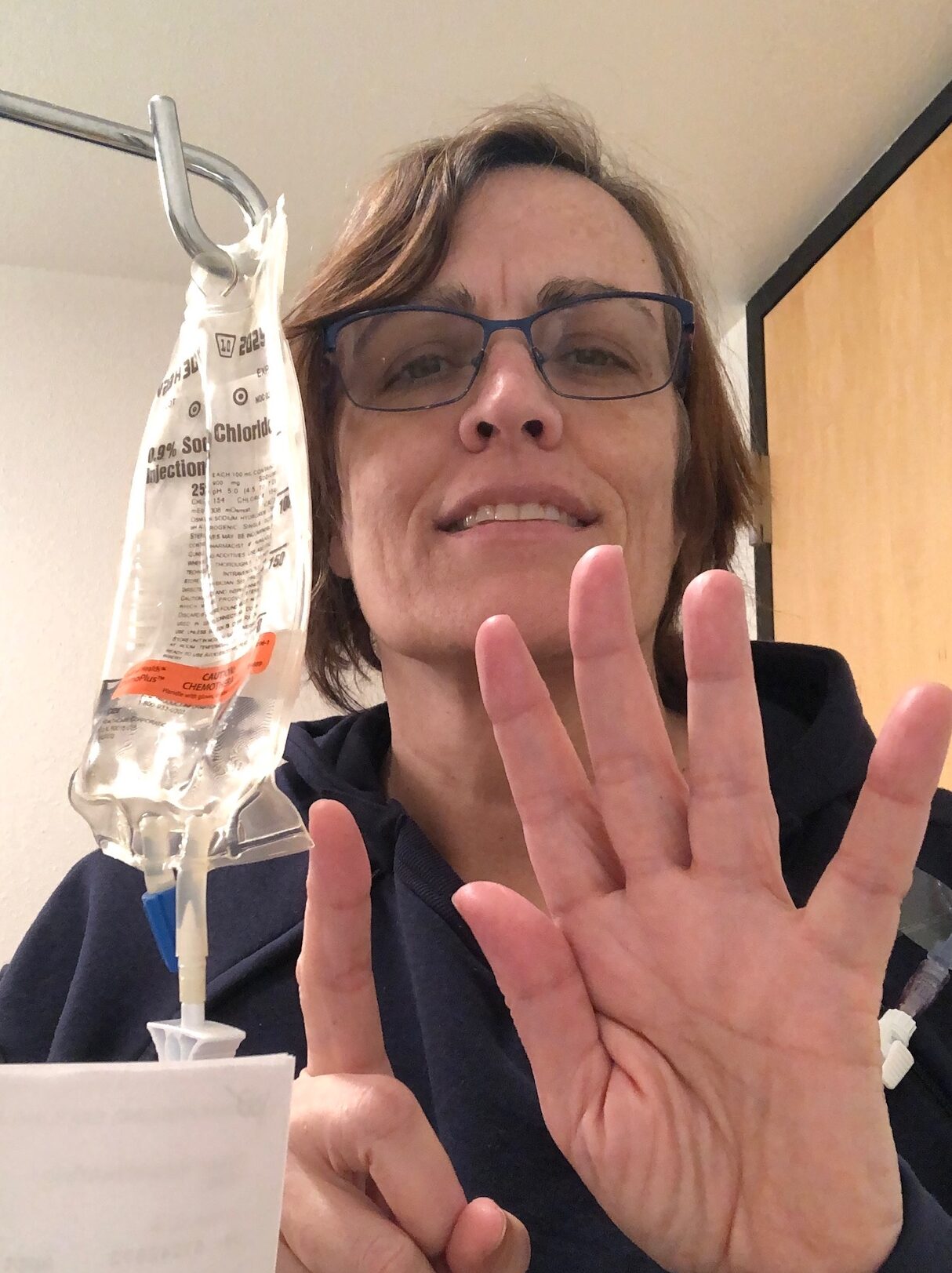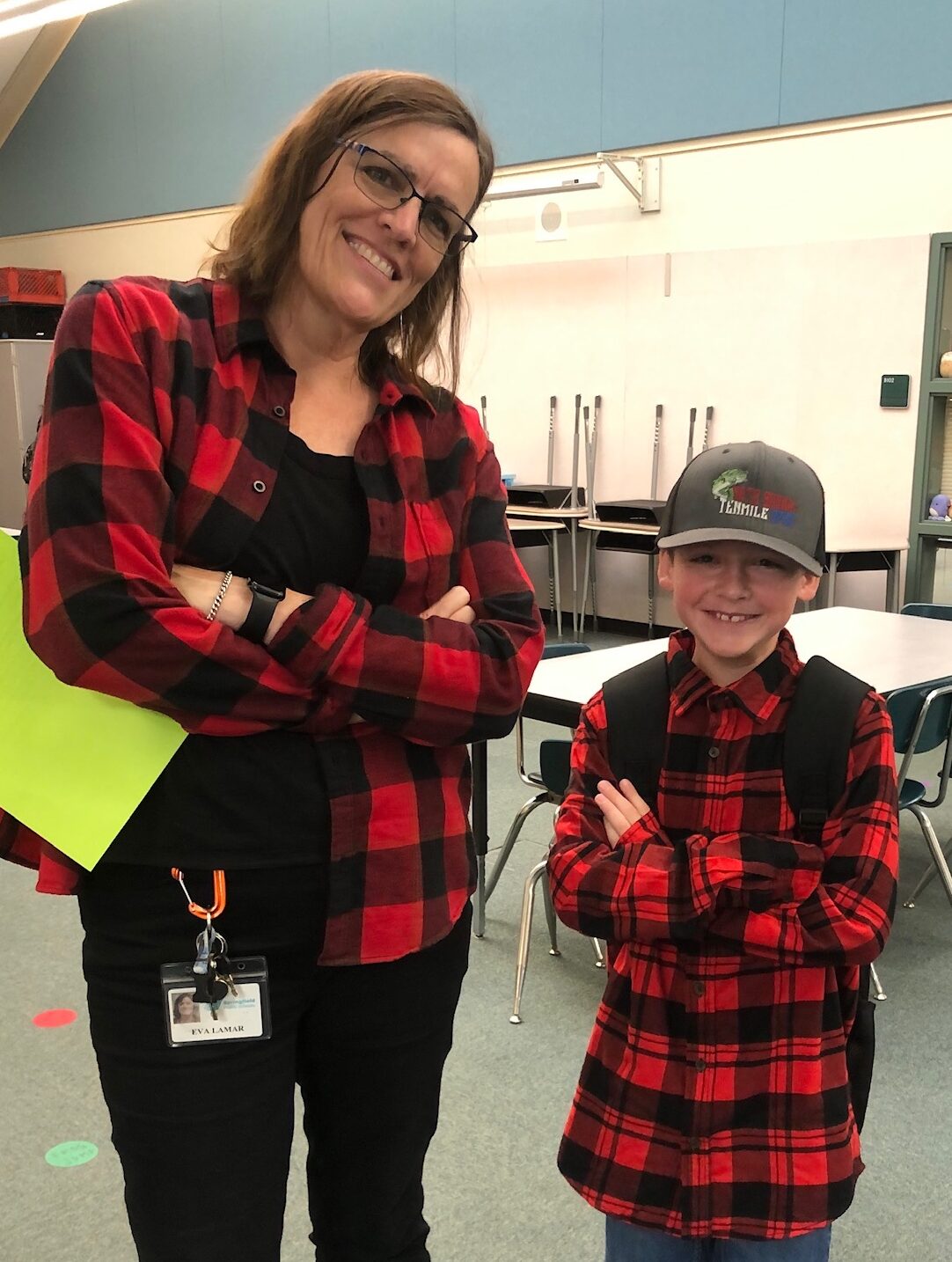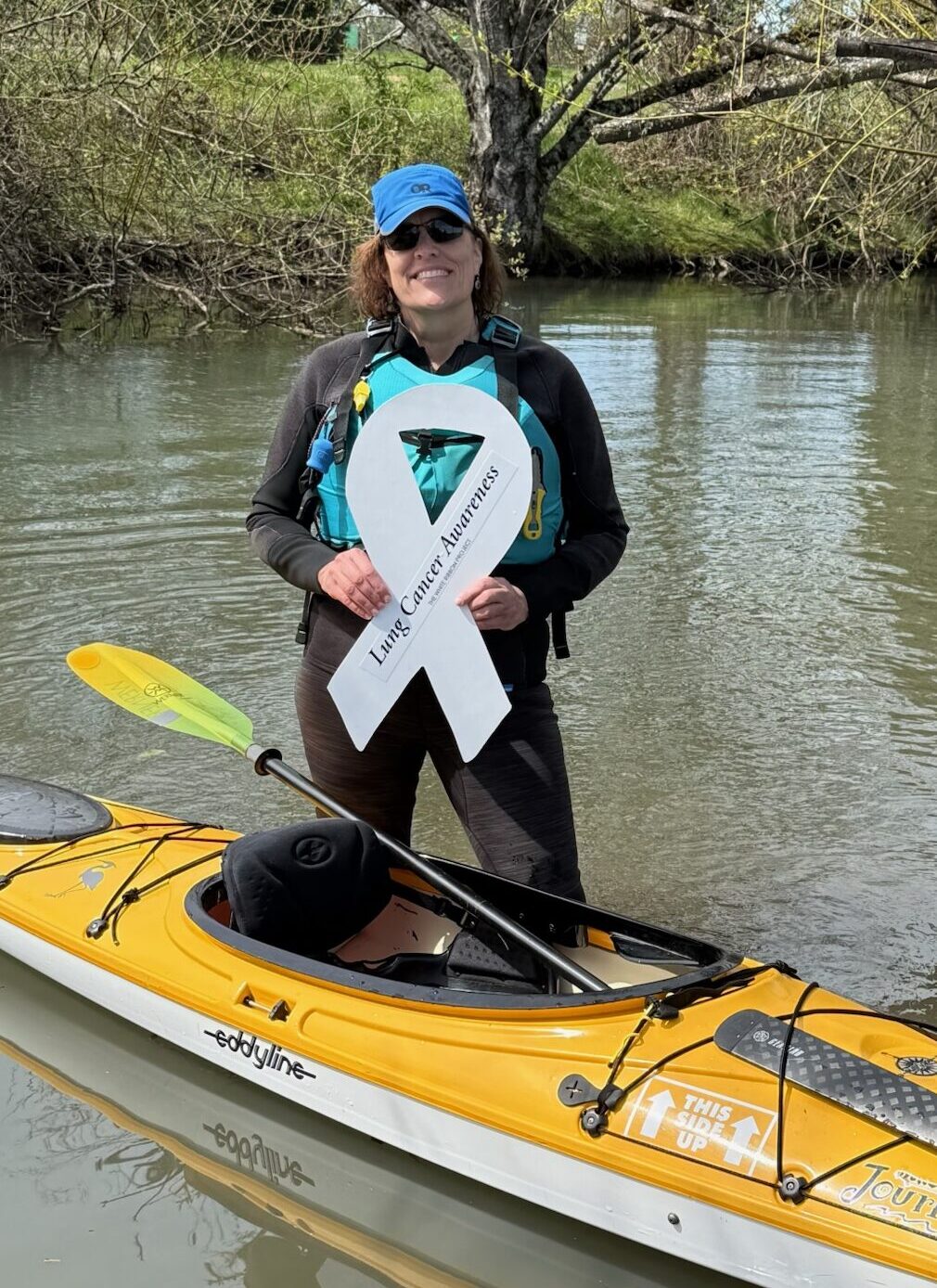Eva L. has what she calls an “all-American job.” She’s a teacher, a mother, a wife, a sister, a cousin, a daughter, and a neighbor who leaves for work every morning at 7:15 a.m. She is also someone living with lung cancer, a diagnosis that has reshaped her life and sparked her path into advocacy.
Two diagnoses, two realities
 Eva’s path with cancer has been uniquely challenging. Within a short span of time, she was diagnosed with both breast cancer and lung cancer.
Eva’s path with cancer has been uniquely challenging. Within a short span of time, she was diagnosed with both breast cancer and lung cancer.
“Any cancer diagnosis is a shock and alters your life,” Eva says. “With breast cancer, it was scary, but I knew there was a defined pathway and most people survive. I saw myself represented in the community. I didn’t feel diminished as a woman, or that I had brought it on myself.”
Lung cancer, however, was a completely different experience. Instead of empathy, she was often met with suspicion.
“Friends, coworkers, strangers, doctors, and even X-ray techs asked me if I smoked. The weight of the stigma felt as overwhelming as the diagnosis itself. This is the only cancer that is blamed on the patient.”
For Eva, that stigma cut deep, not just in how others perceived her, but in how she had to challenge her own internalized biases.
“I had to face my own stigma as I met other people with lung cancer, as those thoughts ran through my own mind. Our community perpetuates stigma through public service announcements, movie storylines, and cultural assumptions,” she said.
The stigma gap: breast cancer vs. lung cancer
The contrast between her experiences with breast cancer and lung cancer has been stark.
“With breast cancer, no one questioned my personal behaviors. With lung cancer, even medical professionals didn’t believe me when I said I never smoked. Strangers asked, as if they were diagnosing me with a moral failure.”
Eva is quick to point out the harm in these assumptions. “Smoking is not a moral failure. It’s a product sold to millions through lies about its health consequences. But the stigma lingers, and it impacts funding, research, and the way patients are treated.”
From classroom advocacy to cancer advocacy
 Advocacy is not new to Eva. As the mother of a son with autism, she spent years navigating the education system to ensure he received the support he needed.
Advocacy is not new to Eva. As the mother of a son with autism, she spent years navigating the education system to ensure he received the support he needed.
“I learned to advocate for him and for the kids who came after him. It was exhausting but necessary,” she says. “That experience taught me that no one should have to be an ‘insider’ to get the support they need.”
Now, she’s bringing those skills to lung cancer advocacy. “If stigma means less funding, then I need to participate in breaking it down. While I feel strong enough, I want to use my voice where and how I can.”
Finding her place
Eva’s entry into advocacy began with workshops through the Oregon Cancer Foundation and The White Ribbon Project. She realized that keeping her story private only reinforced the stigma.
“Many women diagnosed with breast cancer just a decade ago reported similar experiences—friends and neighbors avoided them,” she said. “But that changed because survivors spoke up, advocated, and worked together to shift the narrative. I realize now I must do the same.”
Part of that experience will take her to Washington, D.C. in 2026 for her first-ever Lung Cancer Voices Summit that GO2 has held annually for the past 19 years.
“I look forward to learning how to add my voice to the movement others have been building for years. This will be a launching pad for me and the start of learning how to advocate at a regional and national level.”
Humor and humanity
Humor has also been one of Eva’s tools for resilience. From joking about “coffin lights” during a PET scan to wearing her favorite shirt that reads, “Cancer, 1 star out of 4, do not recommend,” she uses humor as a way to start conversations.
“By starting with humor, people actually talk to me about lung cancer. That’s how we break down stigma—by talking, connecting, and reminding people that anyone with lungs can get lung cancer.”
Looking ahead
 As we recognize Lung Cancer Awareness Month this November, Eva hopes more people will join her in challenging stigma, supporting research, and amplifying awareness that anyone with lungs can get lung cancer.
As we recognize Lung Cancer Awareness Month this November, Eva hopes more people will join her in challenging stigma, supporting research, and amplifying awareness that anyone with lungs can get lung cancer.
Eva knows she has much to learn about advocacy, but her experience as a teacher and advocate for her son gives her confidence. “If my voice helps one person understand that anyone with lungs can get lung cancer, that’s a win. That’s how movements shift.”
As she prepares for her first Voices Summit, Eva is stepping fully into her role as a lung cancer advocate—an all-American teacher using her voice to change the narrative, increase federal research funding, and help build a stronger, more supportive community for people at risk for and living with lung cancer.
Registration is now open for the 2026 Voices Summit. Join Eva and hundreds of other advocates from across the country in Washington D.C. on March 1-3, 2026.

Leave A Comment